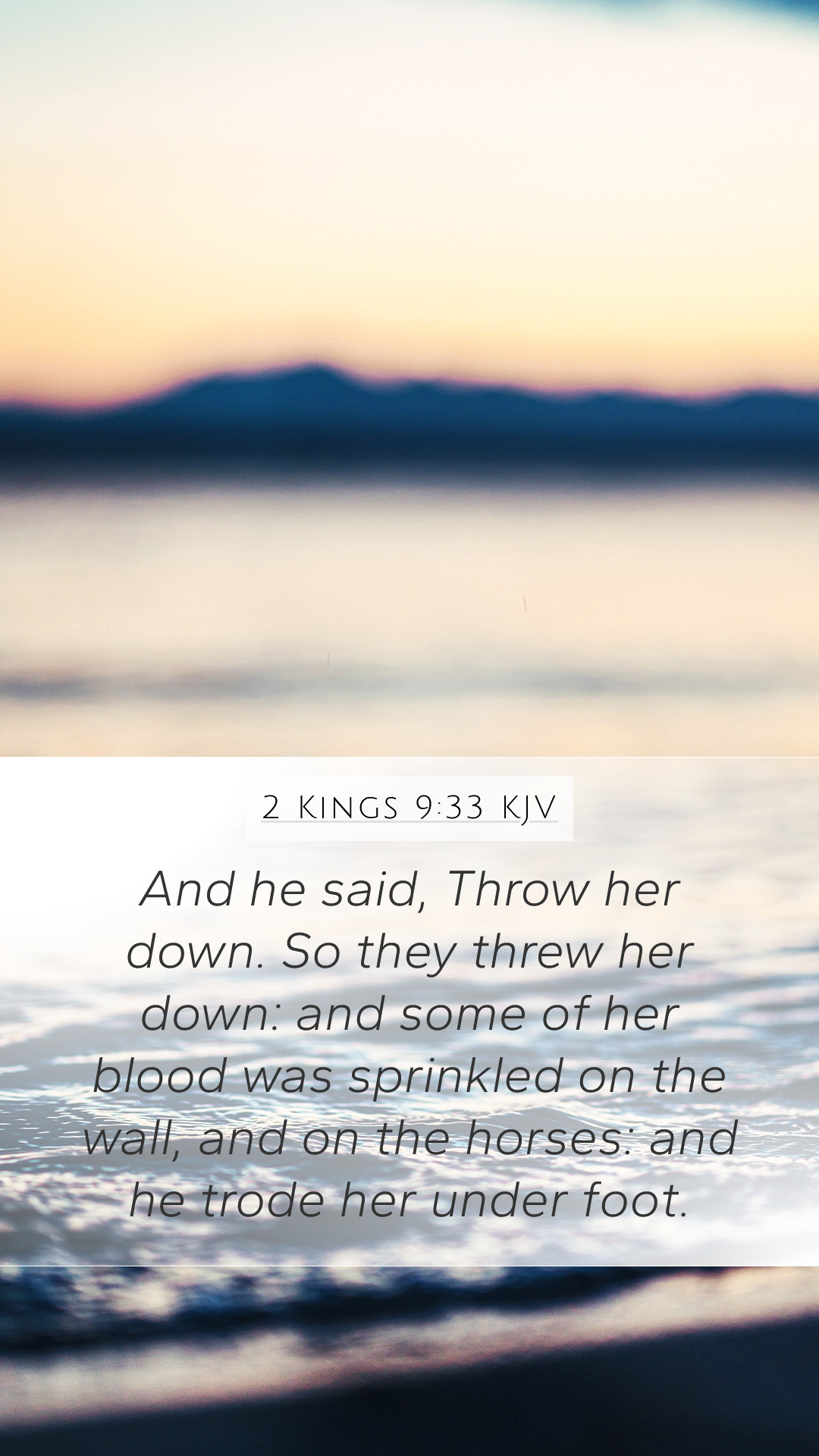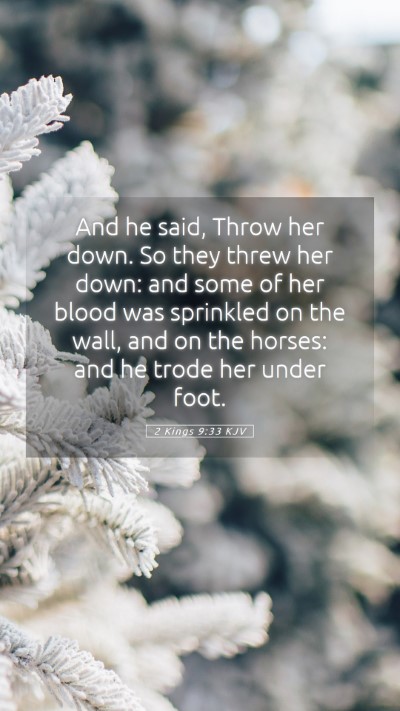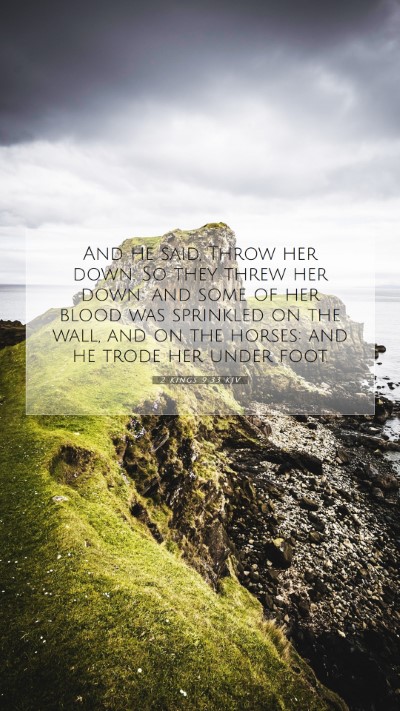Bible Verse Explanation: 2 Kings 9:33
Verse: "But when Jehu went in, she said, 'Had Zimri peace, who slew his master?'"
Introduction
This verse falls within a critical period during the reign of Jehu, who was anointed king to eradicate the house of Ahab, including Queen Jezebel. The interaction highlights Jezebel's recognition of impending judgment and her defiance against God's plans.
Bible Verse Meanings
The meaning of this verse can be dissected through the insights provided by various public domain commentaries:
- Matthew Henry: Henry suggests that Jezebel, by referencing Zimri, is drawing a parallel between Jehu and Zimri, who similarly killed his king, Elah, but met a tragic end himself. This reflects her attempt to intimidate Jehu, questioning whether his actions will also lead to his downfall.
- Albert Barnes: Barnes explains that Jezebel's act of questioning Jehu in such a manner reveals her sharp wit and strident confidence. She is not merely lamenting her fate but is challenging Jehu, embodying the spirit of defiance against God's judgment.
- Adam Clarke: Clarke emphasizes Jezebel's disregard for divine authority. Her question indicates a belief that Jehu’s rebellion against the throne ultimately serves as a fulfillment of vengeance against her, echoing her desperation and awareness of her own doom.
Biblical Exegesis
This verse can be analyzed in several layers:
- Historical Context: Understanding the historical context reveals that Jehu’s rise to power was foretold by the prophet Elisha as a divine judgment against the house of Ahab. Jezebel’s questioning situates her within a narrative of impending judgment.
- Literary Significance: This encounter is not merely a historical account; it utilizes rich literary themes of irony and symbolism—Jezebel’s fate serves as a contrast to her brazen demeanor.
- Theological Implications: The verse can be seen as an exploration of the themes of authority and rebellion, illustrating the perils that await those who oppose God’s will.
Application of 2 Kings 9:33
This verse prompts readers to consider how defiance against divine authority can lead to dire consequences. It serves as a reminder of the importance of aligning oneself with God’s plans rather than acting in self-interest.
Cross References
- 1 Kings 16:18-20: The account of Zimri’s rebellion and subsequent demise.
- 2 Kings 9:6-7: The anointing of Jehu and his mission against Ahab’s house.
- Revelation 2:20: Jesus mentions Jezebel in the context of false teachings.
Conclusion
The verse, therefore, carries significant weight in understanding the dynamics of power, judgment, and divine authority. It illustrates the futility of defiance against God's ordained plans and serves as a warning against pride and rebellion.
Further Study and Resources
For those engaging in Bible study groups, consider the implications of this verse on current societal power structures. Explore Bible study tools and Bible study guides for deeper insights into the historical and theological significance of such passages.


